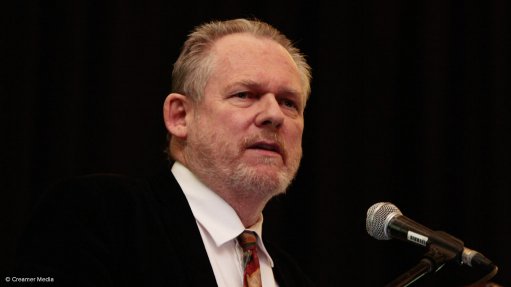
Trade and Industry Minister Dr Rob Davies
Photo by: Duane Daws
Trade and Industry Minister Dr Rob Davies stated on Friday that revised guidelines for the National Industrial Participation Programme (Nipp) would be circulated “shortly”. This would form part of the “strengthening and alignment” of Nipp with “other public procurement levers, namely Designations and the Competitive Supplier Development Programme”. Nipp applies to all government procurement programmes which involve imports with a value of more than $10-million.
“The key feature of the new guidelines is the move away from indirect Nipp and the placing of strong emphasis on direct Nipp in the aerospace sector,” he elucidated. “Nipp obligations arising from the proposed purchases by State-owned companies will be used to strengthen the aerospace manufacturing activities.”
Furthermore, the Department of Trade and Industry (DTI) is planning to incorporate the local aerospace industry into the Manufacturing Competitiveness Enhancement Programme. This is an incentive that provides matching grants to increase the competitiveness of South African companies, to support feasibility studies into innovatory products and systems and to open new markets. “This process will be finalised shortly and gives effect to the DTI’s efforts to increase its support for the sector,” he said.
Currently, the local aerospace (and defence) industry benefits from the Aerospace Industry Support Initiative and the National Aerospace Centre. Both of these are instruments to support these local sectors, and include government departments, research agencies and private-sector companies. They are intended to support research, development and innovation and to improve the competitiveness of the local industry in general and individual companies in particular.
Under these two schemes, during the last financial year (2012/2013), the DTI provided R21-million to support 169 organisations. In addition, six companies received support to comply with accreditation, certification and standards requirements. The National Aerospace Centre has a joint postgraduate sponsorship programme with European aerospace company Airbus, which funds full-time studies by postgraduate students. To date, each partner has contributed R2.7-million to the scheme. Airbus has raised its annual contribution from R540 000 to R830 000 for the next three years, Davies cited.
The DTI also supports the Centurion Aerospace Village (CAV), again in close cooperation with research organisations and private-sector companies. “In keeping with similar initiatives in other sectors, the CAV is designed to be a cluster development park supported by the public sector,” he explained. “It is important that we restate the fact that this support comes with strong conditionalities. This support for private-sector companies is designed to enable these companies to raise their competitiveness and wherever possible to become part of global supply chains and service links.”
Davies was delivering the keynote address at the formal announcement of a long-term contract between Airbus Military and South African company Aerosud. The function took place at the Aerosud facility in Centurion, south of Pretoria.